How to Choose an Air Conditioning Unit

According to the U.S. Department of Energy, people here in the U.S. spend around $29 billion annually running their HVAC systems. Which is quite a lot, but necessary, especially for those of us that live in hot climates such as Alabama, Arizona, and Florida.
When it comes to knowing how to choose an air conditioning unit, it can be a bit overwhelming for homeowners. The last thing any of us need is any more stress in our lives, so we've put together this simple guide to help you better understand the types of units there are and how to choose an HVAC system for your home.
Let's get started by talking about air conditioning units in general, as understanding that is going to help contribute to finding the right AC unit for your home!
Home Air Conditioning: The Basics
As you probably know, an air conditioner's job is to cool your home. It does this by removing heat and humidity from the indoor air and circulating it back into your home with cooler air. In order to do this, your AC unit uses a refrigerant, which is a type of chemical that helps with the heat transfer process.
Understanding how an HVAC system works can help in the process of learning how to choose an HVAC system.
The Two Main Air Conditioner Groups
The term, air conditioning, is referring to any unit that can do this process in order to cool a space. There are two many types of air conditioning groups that are generally referred to:
- Ductless air conditioning
- Ducted air conditioning
Within these two groups are several different air conditioning options, so let's first talk about these groups.
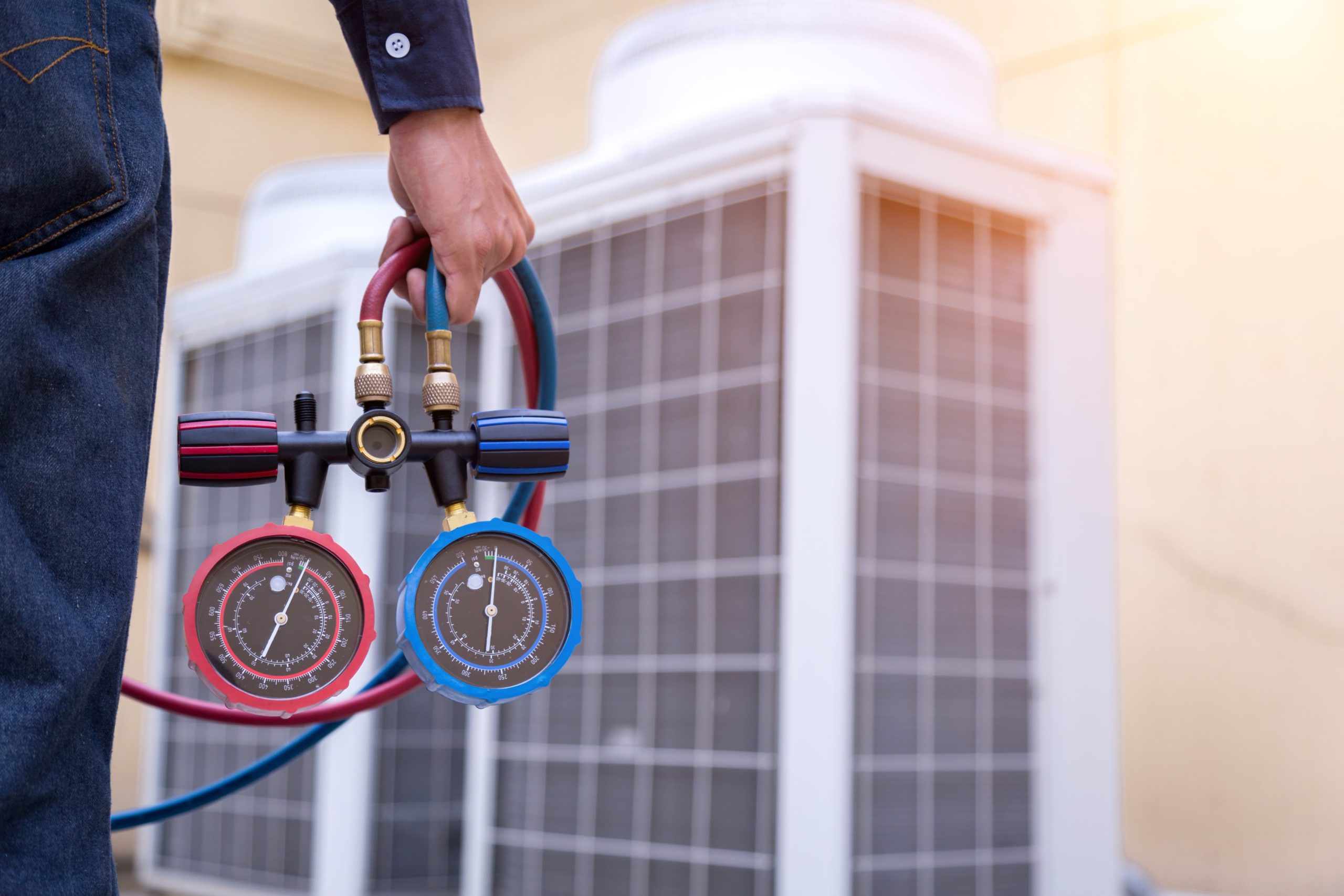
Ductless Air Conditioning
Ductless air conditioning is a great option for those that want to cool specific areas of their home, without the need to cool the entire house. These units are also called mini-splits and work by having an evaporator unit mounted on the wall or window of a room or area you want to cool.
The big benefit here is that since these ductless AC units don't require any ductwork, they can be installed much easier and quicker than other types of air conditioners. This can end up saving you money on installation costs.
There are several different types of ductless air conditioning units:
- Window units
- Portable units
- Mini-split systems
- Evaporative coolers
The downfall to these types of units is that it can be harder to cool multiple rooms with a single unit. Since they don't have ductwork spread throughout your home to help distribute the cool air, they are limited on the number of spaces or rooms that it can keep cool.
Ducted Air Conditioning
On the other hand, ducted air conditioning is a great option for those that want to cool their entire home with a single unit. As the name implies, these units use a system of ducts that are spread throughout your home in order to distribute the cool air.
The main benefit of these units is that they can keep your entire home cool and comfortable with a single unit. This can save you money on energy costs as you won't need to run multiple units to cool different areas of your home.
There are a couple of different ducted air conditioning units to choose from:
- Central air conditioning
- Heat pumps
- Geothermal heat pumps
The downfall to these types of units is that they can be more expensive to install since they require ductwork to be installed throughout your home.
Now that we've gone over the basics of each type of unit, let's talk about some specific features and understand each one of these types of units.
Air Conditioner Window Units
Window air conditioners are a wonderful option for individuals on a budget or with only a few small areas to cool. Window air conditioners are perched on a window sill, as the name implies, and draws in air and blow it back into the house.
The average window air conditioner can cool an area of about 350 - 650 square feet. These units are relatively cheap, costing around $150 to $400 on average.
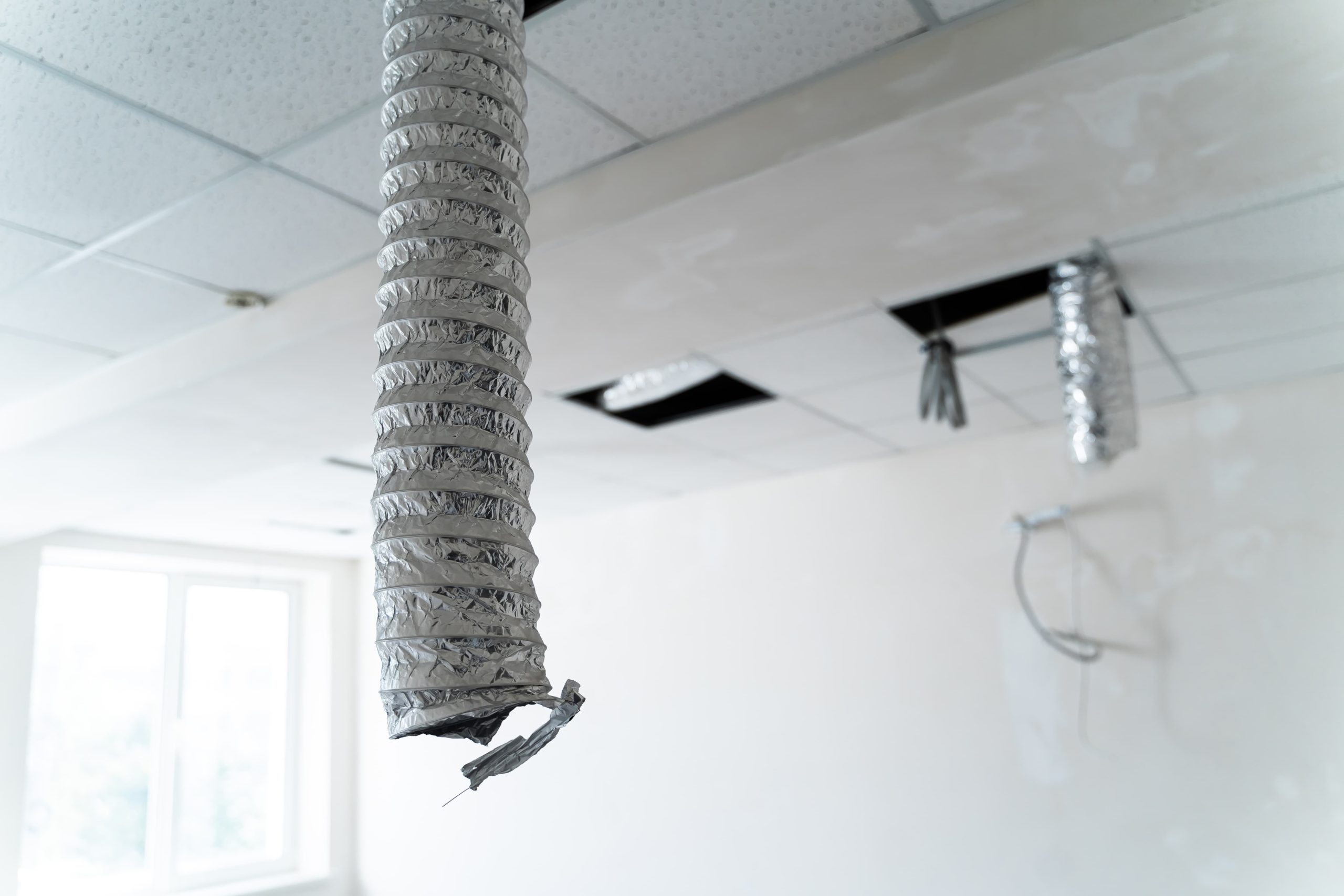
Portable Air Conditioners
Portable air conditioners are great for those that want to be able to move their unit from one room to another. These units sit on the floor and have a hose that runs to a window in order to expel the hot air outside.
The main benefit here is that these units don't require any installation other than putting the hose out your window. Additionally, since they are small, on wheels, and easy to set up, they can be easily moved from one room to another as needed.
Mini-Split Systems
Mini-split systems are a great option for those that want to cool a few specific rooms in their home. These units work by having an evaporator unit mounted on the wall or window of a room or area you want to cool and then having a compressor unit outside.
The main benefit of these units is that they are extremely efficient and can save you money on your energy bills. Additionally, since they don't require any ductwork, they can be installed much easier and quicker than other types of air conditioners.
The average cost for a mini-split system is $500 to $2000 for the unit, and then another couple thousand for installation from a professional HVAC team.
Evaporative Coolers
Evaporative coolers are also known as swamp coolers and are a great option for those that live in dry climates. These units work by using the evaporation of water to help cool the air.
These units can actually help to improve the air quality in your home as they help to add moisture into the air. However, this is not a great option for those that live in a high humidity level area.
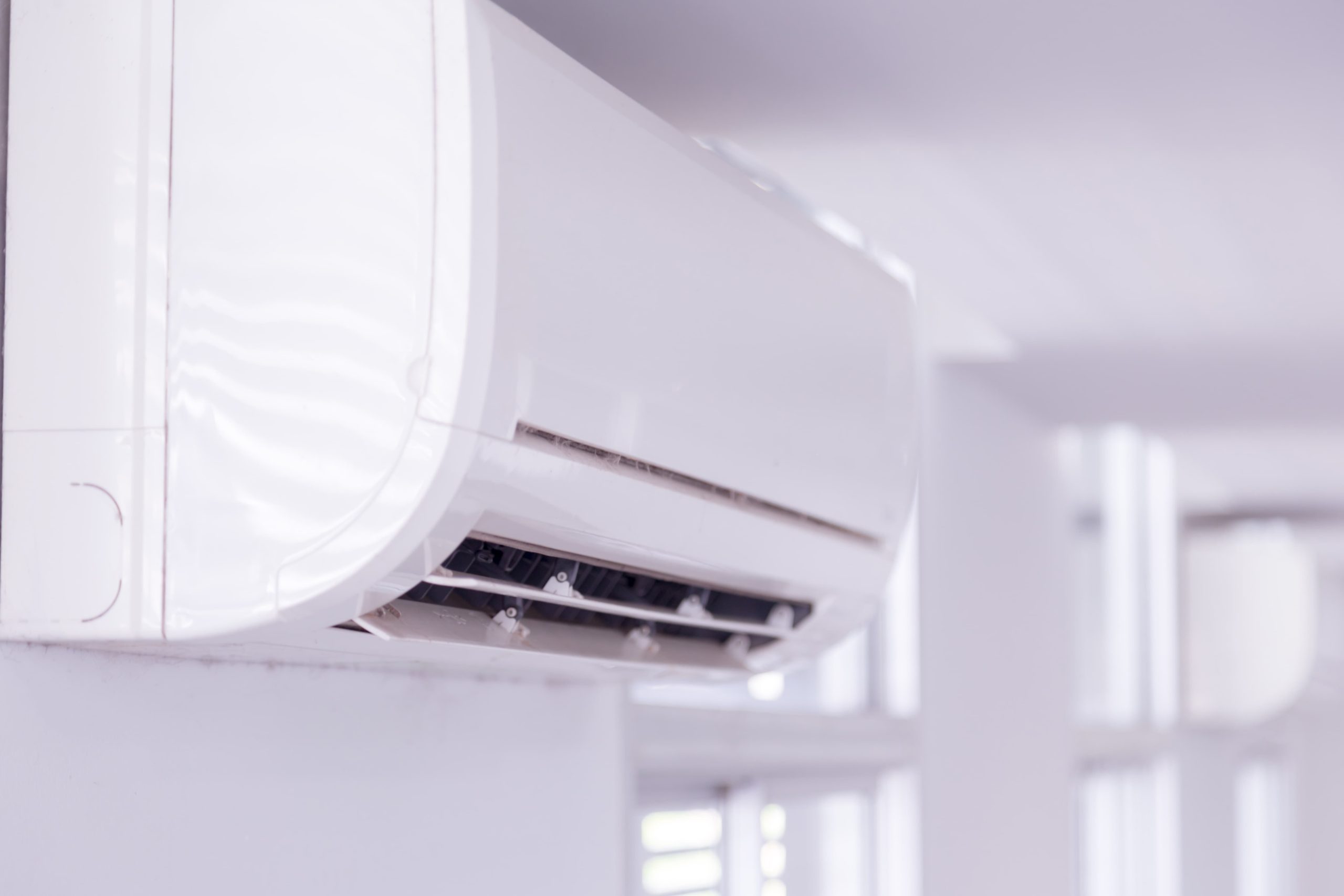
Central Air Conditioning
Central air conditioning units are great for those that want to cool their entire home with a single unit. These units use a system of ducts that are spread throughout your home in order to distribute the cool air.
These are the type of HVAC systems that most people are talking about with their homes. On average you can expect to pay between $4,000 to $7,000 for central air conditioning.
While you can DIY a central air conditioning system, it’s not a project that should be done by someone without professional experience. It's highly recommended to always have a professional HVAC company come out and set up your central air conditioning.
Heat Pumps
Heat pumps are a type of air conditioner that can also operate in reverse. These units are able to take the heat from the air outside and pump it into your home.
This is a great option for those that live in just about any type of climate as it provides both cooling and heating. These units can help to save you money as they tend to be energy efficient.
The average cost for a heat pump unit is $5,000 to $8,000.
Geothermal Heat Pumps
Geothermal heat pumps are similar to regular heat pumps, but instead of using the air outside, they use the ground. These units are able to take advantage of the consistent temperature of the ground in order to help heat and cool your home.
They are tapped into the Earth itself and pump heat from outside under the ground to heat and cool homes and commercial buildings.
While these units can be expensive, they are extremely energy efficient and can save you money in the long run. The average cost for a geothermal heat pump unit is $10,000 to $20,000.
Now that we've covered the basic types of air conditioning systems and you may have a little bit better idea of how to choose a new HVAC system for your home. However, before you jump online or call up your local HVAC company to purchase your system, there are a few more things you should know about choosing an HVAC system.

Other Things to Know About How to Choose an HVAC System
It's good to have an idea or know exactly what type of HVAC system you want and need for your home, but in order to make a good decision, there are a few more contributing factors and things to know.
Here are a few questions to ask when learning how to choose an HVAC system:
- What size AC unit do I need
- How efficient are AC units
- What is the best SEER rating for me
- What features do I need
Let's take a look at each.
What Size AC Unit Do I Need?
The size of the AC unit that you need for your home is going to be dependent on a few different factors.
First, you'll need to know how much space needs to be cooled in your home. This can be determined by the square footage of your home. However, other factors such as the layout of your home and the number of windows will also play a role in how much cooling power you'll need.
Bigger isn't always better when it comes to HVAC systems. When it comes to cooling power, BTUs or British thermal units are important to know and understand. This is the measure of how much heat an air conditioner can remove from a room in an hour.
One ton of cool equals 12,000 BTU's per hour. For rough estimates, you can figure that one ton of capacity is needed for every 600 square feet. So if you have a 1,200 square foot area to cool, you'll need 24,000 BTU's or two tons.
However, that is a very rough estimate and there are other things that contribute to your BTU needs such as:
- Amount of windows
- How many people are in the room regularly
- What climate do you live in
A professional HVAC company will be able to properly size an air conditioner for your home. Many people make the mistake of thinking that they can save money by buying a smaller unit, but this will only lead to higher energy bills and an AC unit that constantly needs repairs.
It's important to find the exact size needed for your specific needs!
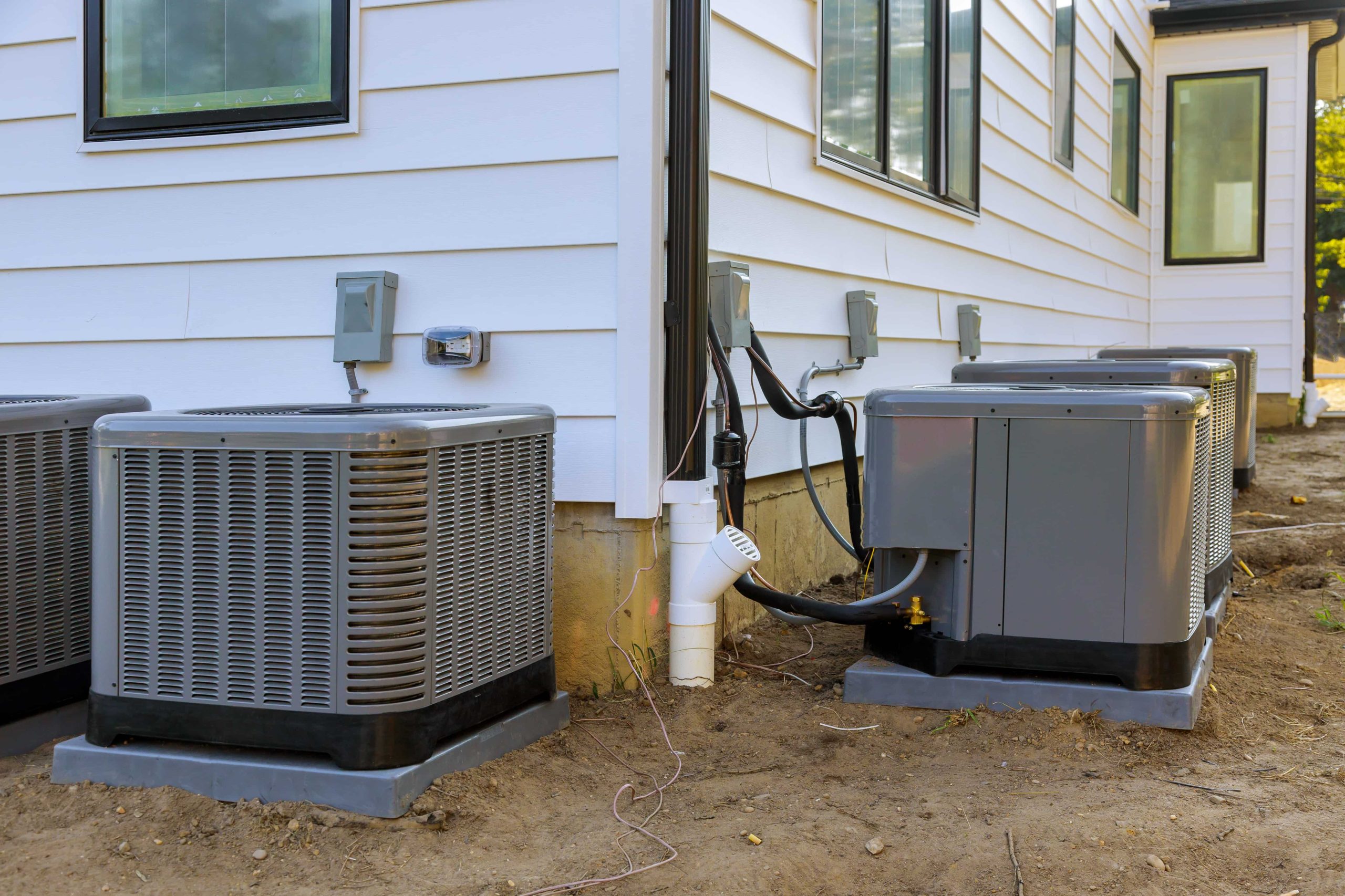
How Efficient Are AC Units
According to energy.gov, you can save 20 to 40% on energy costs with a new efficient AC unit. The more efficient your air conditioning unit is, the more that you can save on your monthly utility bills.
So, when you go to choose a new HVAC system, it's highly recommended to find one that is energy efficient if you want to save where you can! Which brings us to the next question, about SEER ratings.
What is the Best SEER Rating for Me
The SEER rating is the ratio of cooling output over the entire season to the amount of energy that was consumed. The higher the SEER rating, the more efficient the system will be.
For example, an air conditioner with a SEER rating of 10 will use less energy than one with a SEER rating of 6.
In order to find high efficiency systems, you'll want to look for an AC unit with a SEER rating of 14 or higher. Some units even have ratings as high as 22!
While these units may cost more upfront, they can save you money in the long run because they are so much more efficient.
What Features Do I Need?
Lastly, you'll want to consider what types of features you want in a new AC replacement. After all, HVAC systems have come a long way in the last decade and they come with a ton of new features. Some of which can help you save on your monthly energy bill.
Some key features to look out for are:
- Smart Temperature Controls
- Sleep mode
- Programable thermostat
- Auto-cleaning
Of course, any other features that you may want!
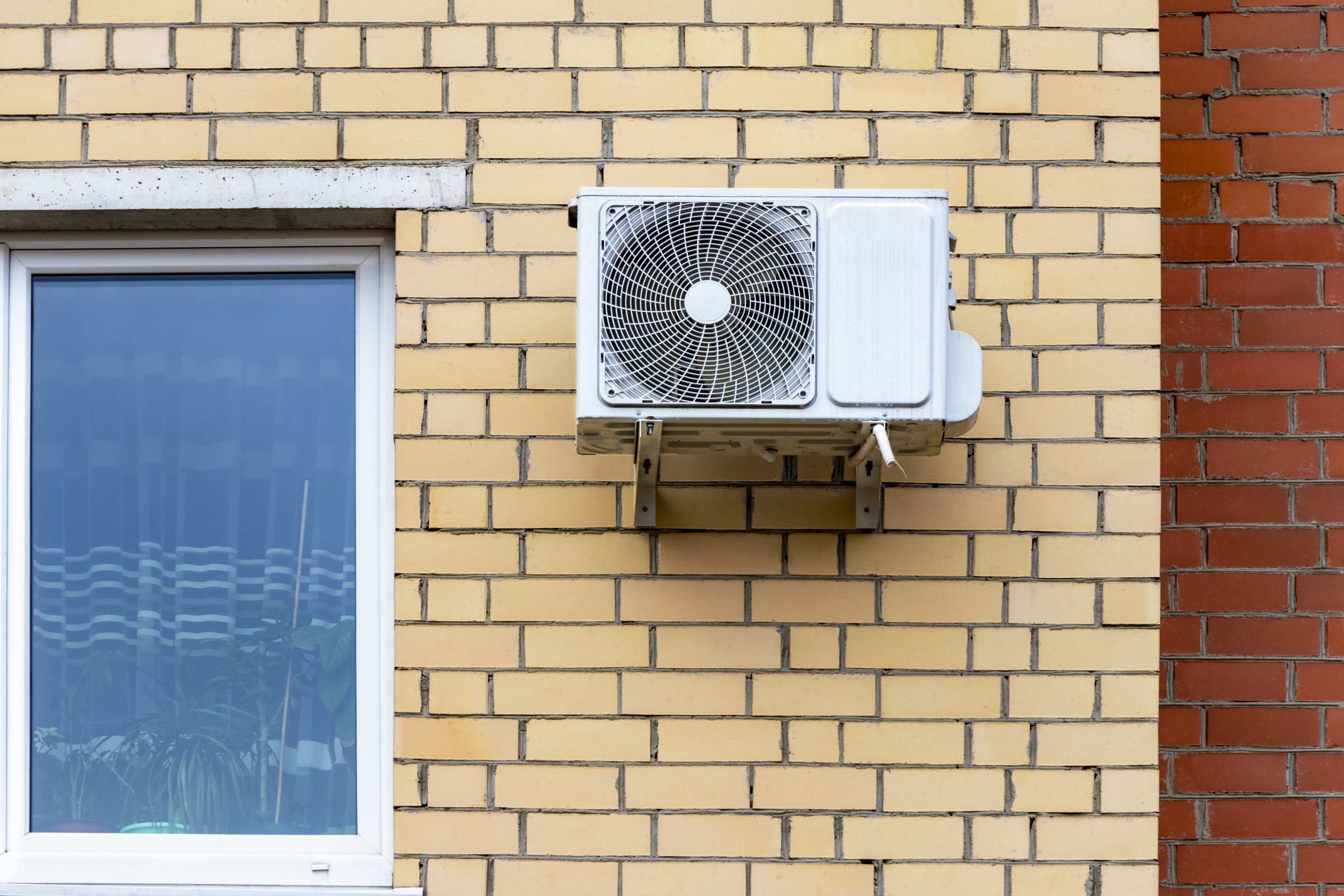
Knowing How to Choose an Air Conditioning Unit
Now that you know more about how to choose an air conditioning unit, you'll be able to make a more informed decision when it comes time to purchase a new HVAC system for your home!
By understanding the different factors involved in the process, such as size and efficiency, and the type of unit needed for your home, you can find the perfect AC unit for your needs.
With these tips in mind, choosing an air conditioning unit will be a breeze! If you ever are unsure, it's highly recommended to contact your local HVAC contractor as they'll know what unit to recommend for you.
If you have questions about how to choose a new HVAC system or you need HVAC services in Alabama, be sure to call up Thomas Service Company. We're your first choice for highly trained, professional, and friendly HVAC services.
1 Comments
Leave a Comment
You must be logged in to post a comment.


[…] you'll want to make sure you have the right unit in your home. So learn how to choose an air conditioning unit that fits your needs right here in […]